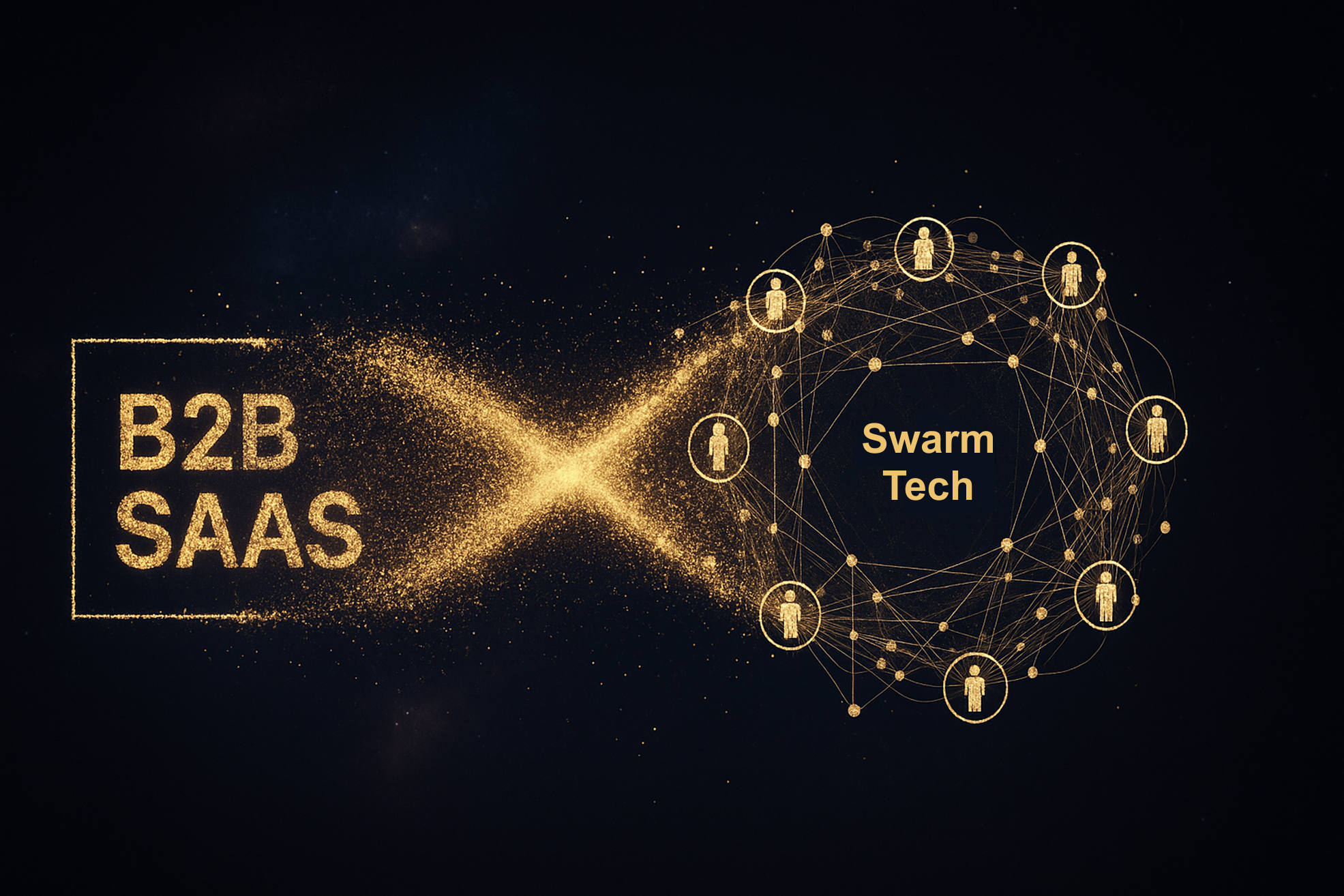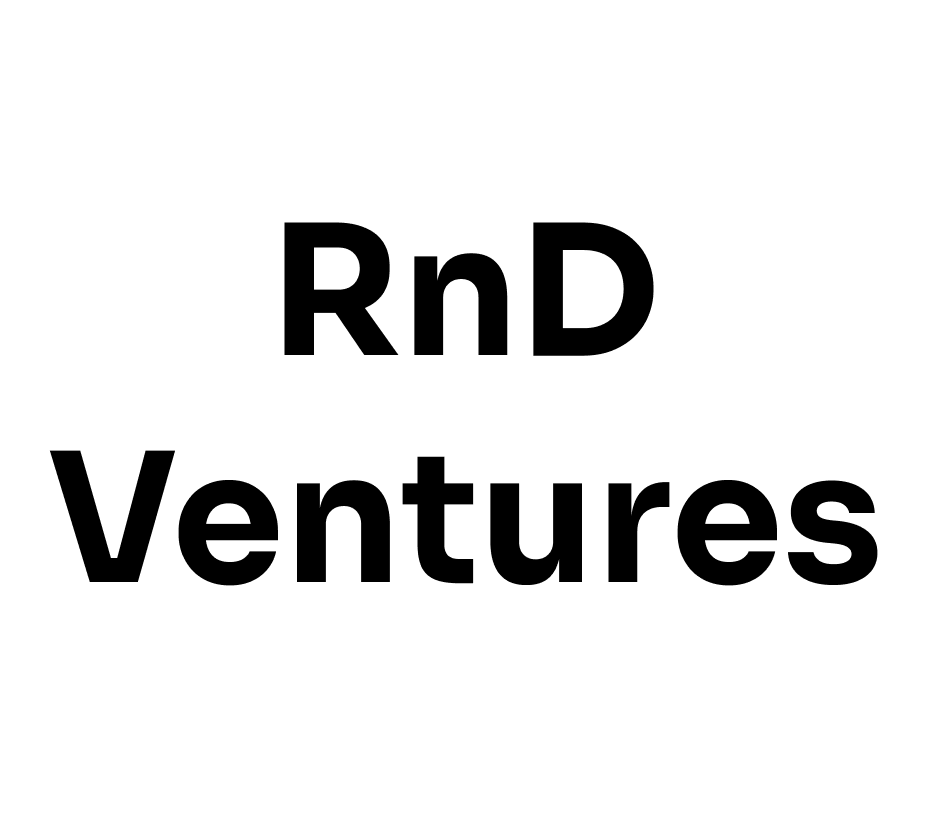B2B SaaS is Dead, Long Live Swarm Tech

B2B SaaS is dying. Not from failure, but from structural pressures that make both the "B2B" and "SaaS" labels increasingly meaningless.
The End of an Era
What's dying isn't collaboration software itself, but the specific business model and organizational assumptions that defined the B2B SaaS era.
Collaboration tech is a broad category that includes tools to manage project and tasks, cap tables, CRMs, ERPs, automation of sales and invoicing, procurement and purchasing, accounting and book keeping, analytics and governance, gig platforms and contracting, identity and permission management, etc. In short, it's about software tools for collaboration and work.
Collaboration Tech has evolved through at least two technological epochs and is now entering a third.. From the 1960s, lifetime-licensing for on-premise software became increasingly popular , creating the software licensing era. then, in 1998, NetSuite was born as a cloud-CRM, closely followed by Salesforce in 1999 as a cloud-ERP, together pioneering the B2B SaaS era of collaboration tech.
Each Collaboration Tech era ended when its core assumptions became incompatible with new technological and organizational realities. From 2002, AWS democratised cloud infrastructure, making on-premise deployment optional. Then the 2008-2012 economic crisis made companies cost-conscious, and hence more interested in flexible per-seat pricing to avoid the upfront costs of licensing software for life and setting up servers. Technological advancements led to faster paced markets and organisations had to become increasingly agile. With these new technological and organizational realities, B2B SaaS rapidly took off. However, the very context that pushed Collaboration Tech to operate as B2B SaaS is now changing, paving the way for a new era of collabtech to emerge.
SaaS Models Are Breaking
Traditional subscription models face three structural problems:
- Shrinking revenue pools: as AI agents replace human workers, fewer billable seats remain for per-user pricing models.
- Cost-value misalignment: AI inference costs vary significantly more between occasional and power users than compute or storage did for regular B2B SaaS, forcing 44% of SaaS companies to charge separately for AI features.
- Fluid teams: organizations increasingly work with freelancers and contractors (and might soon work with autonomous AI agents), in part-time and temporary arrangements that are at odds with per-seat pricing. The future of work is small teams that collaborate and adapt to rapidly changing markets (swarms, not monolithic bureocracies).
These structural breaks make the "SaaS" label a poor description of the market reality.
"B2B" Dissolves
The "B2B" concept is based on two core premises that are dissolving:
- Top-down procurement processes are increasingly not how Collaboration Tech products go to market. Notion achieved its $10 billion valuation with a B2C strategy where individual users discovered and loved the product, shared it virally with teammates, and eventually drove enterprise-wide adoption, thus bypassing traditional procurement processes. Increasingly, Collaboration Tech companies follow the same bottom-up sales approach.
- Fixed organizational boundaries are dissolving. Companies are becoming fluid and swarm-like, with increasingly fluid teams and shifting hierarchies. For example, USA companies experienced a 260% growth in freelancer usage between 2022 and 2024. This shift makes it increasingly nuanced to define who is and isn’t part of an organization, and increasingly nuanced to define who should pay for tools. Soon, AI agents will be able to autonomously discover and purchase services from other agents, further eroding organisational boundaries.
The entire concept of "business-to-business" software sales is becoming increasingly maladapted when it's individuals (and soon agents) who purchase software to be used across multiple businesses and with widely varying usage.
The Swarm Tech Era Begins
We're entering the Swarm Tech era of Collaboration Tech, where small teams of agents and humans can rapidly aggregate and collaborate at scale through marketplaces, organizations adopt tools through viral bottom-up patterns, and pricing shifts from access-based subscriptions to usage and outcome-based models.
Global instability is increasing with uncertainty around economic policy, geopolitcal conflicts, and a combination of rising global debt (256%) and slowed growth (2.3%). There's a powerful combination of macro factors leading to a change in the way we organise and collaborate.
Unlike previous Collaboration Tech era transitions that took decades, this evolution is happening rapidly with massive investment in AI models and blockchain-based trust systems, leading to AI agent markets projected to grow (conservatively) from $7.8 billion in 2025 to $52 billion by 2030.
B2B SaaS served its purpose as one era within Collaboration Tech's ongoing evolution. Its decline creates space for something far more powerful: collaboration technology that adapts to fluid organizations, autonomous agents, and outcome-based value creation. In short, tools for swarms that can quickly adapt and re-organise to thrive in rapidly changing markets.
The question isn't whether this transition will happen. It's already happening. The question is which builders and funders will recognise the opportunity before it becomes obvious to everyone else. Some are already leading the charge with solutions for network states, networked organisations, and agent marketplaces.
B2B SaaS is dead, long live Swarm Tech.
Learn how RnD Ventures is partnering with entrepreneurs to build the future of Collaboration Tech.
